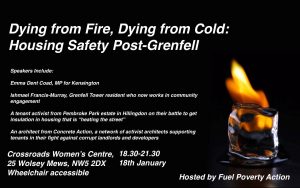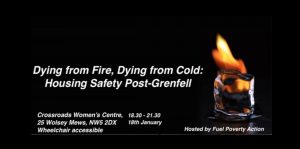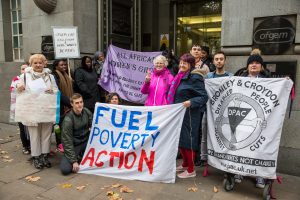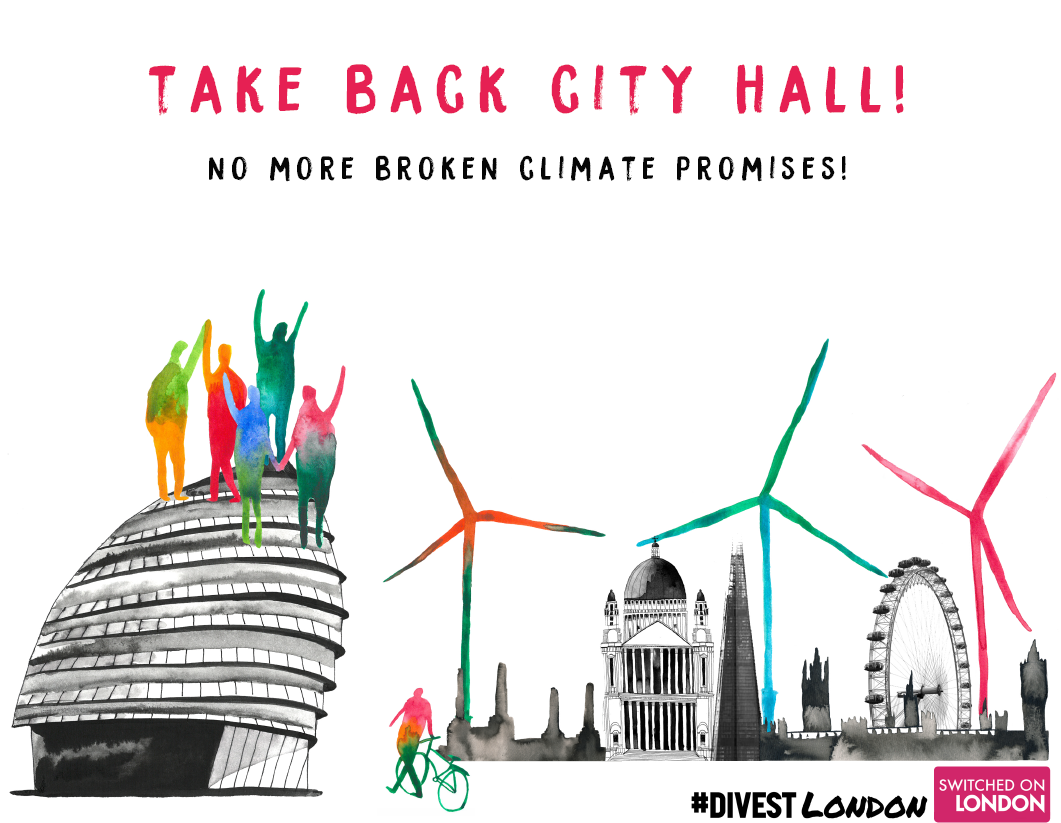
Tomorrow is FPA’s next regular monthly meeting. We’ll be focussing on a presentation of some research that we’ve done on fire safety and building regulations – what’s happened post Grenfell and what the law states. We’ve been trying to find out who is responsible and what can we do about it?
We’ll have a discussion about this, as well as some regular meeting points, including an update on what’s happening around London with district heating.
The meeting is at 7pm, at Crossroads Women’s centre, 25 Wolsey Mews, Kentish Town, NW5 2DX. Do come along!
Press Release. Shared Warmth: Not for all.
Trade body ADE established a Task Force last year to consider new proposals and principles for the District Heating industry.(i) Their report Shared Warmth | A heat network market that benefits customers, investors, and the environment, came out today.(ii)
The Task Force of stakeholders acknowledged the need for regulation of the industry, since heat networks are monopolies, which “can lead to unreliable service, . . . poorly controlled and costly heating and . . . poor customer service”.
They recognised that for the industry to grow, “customers need to have a consistently good experience, fair and transparent pricing, and an assurance that when things do go wrong they will receive effective and fair redress.”
Yet they limited the scope of their recommendations to principles for future networks. There are already some 17,000 heat networks in the UK, and while many function well, there are thousands of households in networks built over the past decade with private capital, where dysfunctional and unaffordable heating has made life a misery.(ii)
District Heating users were not invited to be part of the Task Force, but with Fuel Poverty Action a group of them, from four estates, brought their harsh experience to ADE director Tim Rotheray, in December. They were thanked for their time, and told that their information would be helpful for the future, but that in their own situation nothing could be done.
Residents on such housing estates hope for the best for new developments, but as one says, “Whilst I appreciate many DH customers are reported as happy, that doesn’t mean we should be ignored, brushed to one side or forgotten.”
The nationwide survey “Heat Networks Consumer Survey” conducted by BEIS and published in December found that three quarters of heat network users are satisfied with their heating. Fuel Poverty Action maintains that if, as claimed, problematic networks are a minority, and standards are now improving, the industry as a whole bears a collective responsibility to bring all existing heat networks up to standard. Ruth London comments:
Experience has shown that with expert intervention tariffs can be halved, and reliability greatly improved. An industry-wide rescue plan for failing schemes would provide the consistency and certainty that the ADE Task Force says is essential for industry growth. It would also ensure that the human guinea pigs in failed District Heating experiments get the redress they so desperately need, to keep warm.
The report’s only recommendation fo existing heat network customers is that a regulator should “eventually widen the scope” of a Supplier of Last Resort, to “include all heat networks”. The Supplier of Last Resort would step in when a heat network fails. FPA believes that this basic protection, normal for essential services like energy or heat, should be extended to all immediately, and should apply when a network fails to fulfil its obligations to customers at an acceptable standard, as well as if it fails to meet its financial obligations.
Ends.
(i) District Heating – like central heating for neighbourhoods, supplies heat to homes from a communal source, replacing gas boilers. There are now about 17,000 such heat networks, but this is to expand massively in the next decade, with the help of £320 million of government money. The industry is currently unregulated.
(iii) See for example our report of the network on Myatts Field North, in Lambeth here, and numerous reports by Which? and Citizens Advice.
Dying from Fire, Dying from Cold: Housing Safety Post-Grenfell
La st Thursday, Fuel Poverty Action hosted an evening of discussion about the cold, fear and poor living conditions faced by residents of many housing estates in the wake of Grenfell.
st Thursday, Fuel Poverty Action hosted an evening of discussion about the cold, fear and poor living conditions faced by residents of many housing estates in the wake of Grenfell.
One of the star speakers at the event was Ishmael Francis-Murray, a resident of Lancaster West Estate, which sits in the shadow of Grenfell tower. He was a plasterer until the fire at Grenfell – the morning he watched friends die and family members fall apart. He was shocked by the inaction of government and the lack of support offered to children and the bereaved. “The kids who no-one seems to talk about are carrying really heavy burdens,” he said. “They’ve lost classmates and they’re not being given support.”
He has devoted the last 7 months to representing the views and rights of residents in the area, and has made a documentary series about the fallout from Grenfell called ‘Failed by the State’.
Ruth London, from FPA, said the very same penny pinching, cheating building practices, unaccountability and second rate materials that led to the fire at Grenfell Tower were also causing thousands to die from cold each winter, in poorly insulated flats.
“Thousands more high rise residents are now at risk from cold since cladding and insulation have been removed as fire risks, and haven’t been replaced,” she said. “It’s not acceptable if they make things a bit safer in terms of fire but they leave people to freeze.
Emma Dent Coad, MP for Kensington spoke about her frustration at the government for not creating and enforcing strict regulations on construction companies before and after Grenfell.
She was born and raised in Kensington and Chelsea, and told of how her own negative housing experiences propelled her into politics. “I had no heating until I was 17 and I did end up in hospital,” she said. “My ceiling collapsed and almost killed my three year-old daughter – thank you Nottinghill housing.”
She highlighted the government’s “appalling” approach to housing insulation, saying, “even in the richest borough in the world [Kensington] we still have 70 excess winter deaths a year – people who die when they shouldn’t have because of the cold.”
“We are not saving money by not keeping warm. It’s a burden on the health service. People are dying who don’t need to die. Children are growing up in awful damp, mouldy situations. This is terrifying – people are being made ill by their homes.”
She stressed poor government oversight and construction company’s cost-cutting practices as the cause for this poor quality infrastructure.
Similar frustrations were raised by Sian Berry, London Assembly Mayor and Green Councillor for Camden, who described her horror at the poor practices of construction companies.
“We’ve had heating re-done in an entire estate and we’ve had enormous problems with the quality of the work,” she said. She explained how residents had to work tirelessly to prove that the construction work was inadequate, drawing up lists and calling numerous meetings with councillors.
“When a resident complains about mould, they get the classic response that: ‘oh, you’re doing too much washing’ or ‘you’re using your appliances wrong’, when actually it’s the house itself that’s causing the problems,” Berry said.
She talked specifically about the Chalcots Estate in Camden which had to be evacuated last year when it was deemed a fire hazard and unsafe for living.
“It wasn’t just the cladding at Chalcots that meant it needed to be evacuated, it was also really shoddy internal work,” she explained.
Another hot topic at the meeting was landlords’ reluctance to take even basic steps towards improving relations with tenants, even after the atrocities at Grenfell. In some instances, they have refused to foot the bill for replacement cladding or do retroactive reconstruction work on buildings.
An architect-in-training from Concrete Action, said that “council estates have been under-maintained for years and years”. One of the reasons she gave for this is that “specifications for building materials can be changed at the last minute because wording is so vague and people can navigate around the wording and cut corners to save money.”
The meeting was attended by a wide range of people with personal experience of poor housing, or expensive and dysfunctional district heating systems. The panelists’ speeches were followed by an extremely spirited and enthusiastic discussion in which many were vocal in their agreement that the government needs to improve its oversight and regulation of construction companies.
All of the speakers stressed the need for increased involvement from residents in decision-making. “The whole system is set up so that residents don’t really have any say,” said the architect from concrete action. “The reality is that people are experts in the areas they live in because they know what they need and what’s important.”
Response to Heat Networks Market Study Statement of Scope
Housing needs to be both safe and warm! Join our public meeting to make this a reality.

Book your free tickets on Eventbrite by clicking this link.
Following the Grenfell atrocity, many high-rise blocks have had their cladding and insulation removed, leaving thousands exposed to illness and death from cold. Last winter over 11,000 people died from cold homes. Like deaths from fire due to shoddy building standards and unaccountable public and private landlords, deaths from cold in this rich country are a shocking and unacceptable tragedy. Residents on many housing estates, new and old, are fighting for insulation – but it has to be safe!
At the same time more and more housing estates are being fitted with district heating networks. Communal heating could save both money and carbon but in practice it is unregulated and often done badly, leaving many residents cold and out of pocket. Also, without thorough inspection, pipes can be left with gaps around them that provide thoroughfares for fire and smoke.
This meeting will be a great opportunity to discuss what residents are demanding and can demand, and exchange ideas and experiences with housing activists, experts on insulation, construction and maintenance, and political decision-makers.
The meeting will be on 18th January, 18.30-21.30 at Crossroads Women’s Centre, 25 Wolsey Mews, NW5 2DX. The venue is wheelchair accessible.
Confirmed speakers include:
***Ishmael Francis-Murray, lifelong Lancaster West resident. Check out his documentary, Failed by the State (https://www.youtube.com/
***Cllr Emma Dent Coad, Labour MP for Kensington, and author of ‘After Grenfell: Housing and Inequality in Kensington and Chelsea, the most unequal borough in Britain’.
***Sian Berry, Green Camden councillor and London Assembly Member. As Mayoral candidate, Sian proposed free insulation for all homes.
***An architect from Concrete Action, an independent network of architecture professionals.
Book your free tickets on Eventbrite by clicking this link.
Winter Fuel Donation Appeal

It’s that time of the year again. As winter kicks in, many people struggling to pay high energy bills are getting much needed relief. Universal Winter Fuel Payments for pensioners are essential to ensure that everyone can get help. However, for those who receive the payment and do not need it, please consider donating to Fuel Poverty Action to support those living in fuel poverty.
To help us fight for better insulation, fair prices, renewable energy, and warm homes, please donate today.
[accept_stripe_payment price=”0″ name=”Donate custom” button_text=”Donate”]

You can also donate via bank transfer using the details below.
Fuel Poverty Action
Sort code: 08-92-99
Account number: 65615456
(Co-op Bank)
PRESS RELEASE: Ofgem confronted over narrow “safeguard” cap at Millbank HQ
November 21st 2017
This morning, on the eve of the release of the latest excess winter deaths statistics, we delivered a tiny cap to Ofgem, along with a letter about their proposed “safeguard” cap on energy tariffs, which will exclude many of the people who need it most, leaving them open to continued uncontrolled “rip-offs” by energy suppliers.
The letter was initiated by Fuel Poverty Action and Disabled People Against Cuts, and has been signed signed by two national trade unions, PCS and UNISON, and a wide range of over 30 disability, women’s, anti-poverty, energy focused, and community organisations.
Representatives from Fuel Poverty Action, Disabled People Against Cuts, the All African Womens Group and Haringey Pensioners Action Group gathered outside 9 Millbank to tell Ofgem that if their plans go ahead unchanged, many disabled people and parents of small children, who could qualify for the cap, won’t. They will be left out in the cold because they do not receive the Warm Home Discount, which is awarded on a first come first served basis.
Continue reading “PRESS RELEASE: Ofgem confronted over narrow “safeguard” cap at Millbank HQ”
Sign our letter to Ofgem on extending their limited cap on energy tariffs
We just took over City Hall to demand the Mayor keep his climate promises
Check out the photos and the video from our friends at Switched on London.
This morning we joined people from across London in bringing Mayor’s Question Time to a standstill, to demand that Sadiq Khan keep his election promises. Join our action online now (or see below).
Along with Switched on London, Divest London and the Greater London Pensioners’ Association we took over the chamber at City Hall and filled it with hundreds of paper planes containing messages for the Mayor.
Sadiq Khan was elected Mayor of London on the back of two big environmental promises:
- To set up a public energy company that gives Londoners clean, affordable energy
- To divest the London Pension Fund from fossil fuels
Over a year in office and he’s broken both. So we decided it was time for action.
Continue reading “We just took over City Hall to demand the Mayor keep his climate promises”
Tell Ofgem: We want a universal cap!
Hundreds of thousands of disabled people and young children in low income homes could be worse off without a fuel price cap – make your voice heard NOW!
Mon 13 November at 9 am is the deadline for responses to a proposed limited cap on energy prices. You may know that the government has for over a year been promising relief for people who pay the default “standard variable tariff” (SVT) – and who are getting ripped off as a result. Meanwhile prices have soared, and so have suppliers’ profits. A small cap on tariffs has been brought in for people with Prepayment Meters. It’s inadequate, but better than nothing. For people with credit meters, Theresa May promised a cap, then went back on it, then promised it again: u-turn upon u-turn. And she is now reassuring the energy industry that it will take ages, if it comes in at all. But meanwhile, the energy regulator Ofgem, with government support, is proposing a limited “safeguarding” cap, which would apply only to people who receive the Warm Home Discount.
Here the story gets murky. Warm Home Discount – worth £140 a year off your electricity bill — is awarded automatically to pensioners on low incomes. People deemed “vulnerable” for other reasons – particularly disability or illness, or children aged 5 or under, can apply to their energy supplier and may get it, but it is “first come first served” with a limited pot, and all the suppliers have different requirements to say who qualifies, mostly based on what benefits you receive. Some smaller suppliers don’t offer Warm Home Discount at all.
This means that despite being eligible, disabled people and children will often be excluded – not only from the discount itself, but now from the cap, which Ofgem say could save the average user around £120 a year. That is a total of over £260 a year, and much more if you need the heat on a lot or use a lot of power.
Ofgem are consulting on this plan, and Fuel Poverty Action will be telling them that this is particularly shocking. Disabled people often need more heat, for medical reasons or if we’re home a lot, and can suffer much worse effects if we can’t afford to keep warm. And, having been hit hardest by multiple cuts, disabled people are in a worse position to deal with rising fuel prices. The same is true for the parents of babies and young children, with benefit cuts, universal credit and low wages causing a massive increase in child poverty.
There is even a risk that, if the cap is applied to some people, the people who don’t qualify for the cap may see our fuel prices rise by even more, as suppliers try to make up the difference through cross-subsidisation!
An Ofgem press release says they will “Ofgem will work on extending price protection to at least a further 2 million vulnerable households for winter next year once the timing of the Government’s price cap is confirmed”. However, there is nothing about this “work” in the actual consultation papers; instead they repeatedly say that to bring the cap in quickly, they will limit it to people who already get the Warm Home Discount.
Fuel Poverty Action think a cap should apply across the board – no means-testing, no cliff-edge where your bills go up if you get knocked off disability benefits, or get a rise in pay, or get married … The prices are too high for everyone now, thousands of people in all sorts of situations are dying from cold every year, and suppliers are making a killing.
But in the meantime, the Ofgem cap is scheduled to come in this coming February. At the very least, it should apply to everyone who would be eligible for Warm Home Discount, whether or not you actually get it. If you want to help make sure that the cap covers more of the people who need it most urgently, you can send a simple email to:
Jemma Baker at vulnerability@ofgem.gov.uk, by 9am on Monday 13 November
And send us a copy at fuelpovertyaction@gmail.com!
Tell them: warm homes are a right – not a “first-come-first-served” lottery!
Feel free to check out our response for inspiration.


